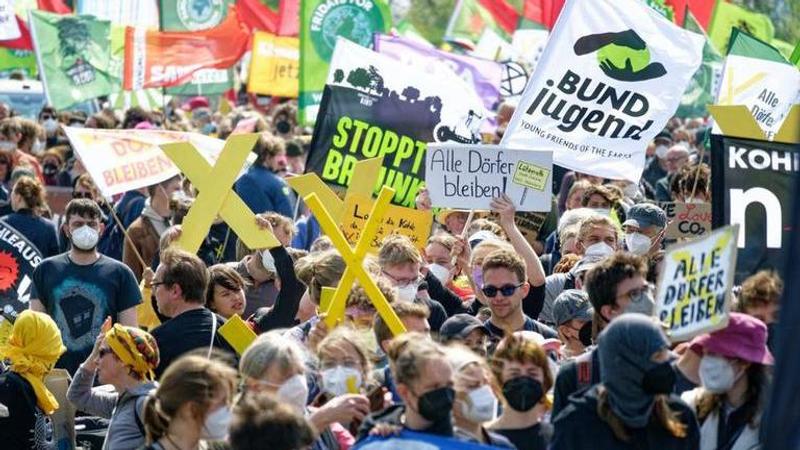Published 13:21 IST, January 14th 2023
Germany’s Lützerath becomes battleground for climate activists and police over coal mine
German police in Lützerath have attempted to disperse hundreds of activists from climate groups who have inhabited the German town for more than two years.

A lesser-known battle rages in the German hamlet of Lützerath, where thousands of climate activists have locked horns with some 1,000 police officers to save the town from being sacrificed for a coal mine. According to CNN, German Police in Lützerath has attempted to disperse hundreds of activists who have inhabited the German town for over two years, living in abandoned homes after former residents were evicted by 2017 for the arrival of a lucrative mine.
Over 1,000 policemen, who are a part of the eviction operation, have been facing tough resistance from protesters belonging to a coalition of climate groups since Wednesday, as per the Aachen city police. Furthermore, Saturday’s protest is expected to bring in thousands of people to the small town, including renowned climate activist Greta Thunberg.
While many will flock to Lützerath to save it from being destructed for a cold mine, it is possible that access to the town will be blocked. “We are taking action against this destruction by putting our bodies in the way of the excavator,” said Ronni Zeppelin, who belongs to the campaign group Lützerath Lebt (Lützerath Lives).
Lützerath, which is situated about 20 miles west of the German city of Dusseldorf, has been the center of a climate battle due to its open-cast lignite coal mine, Garzweiler II. The mine, which spreads around 14 square miles, has devastated multiple villages and displaced families. Its further expansion is now a serious matter of concern to climate groups, which have criticized the mine for its lignite, the most toxic form of coal, an already high pollutant in itself.
After the victory of the Greens in the 2021 federal elections, many held high hopes that the mine’s expansion, which was permitted by German courts in 2012, would be revoked. However, in October 2022, the German government joined forces with multinational energy company RWE to save several villages, but allowed Lützerath’s demolishment due to its rich coal resources.
Greens and activists: The two sides of the story
“We were able to save five villages and three farms from being destroyed, spare 500 people a forced resettlement and bring forward the coal phase-out by eight years,” Martin Lechtape, a spokesperson for the North Rhine Westphalia Green Party, said in an email to CNN. It “is not a renaissance of lignite or coal, but only a side-step – helping Germany to cope with the energy crisis,” RWE spokesperson Guido Steffen added.
On the other hand, one individual who voted Green called the party out for its hypocrisy. “It’s such an absurd and catastrophic scenario that Germany, the country where everyone else thinks we have green [policies], is destroying a village to burn coal in the middle of the climate crisis,” said Dresen. Fabian Huebner, campaigner on energy and coal at Europe Beyond Coal, added: “I think the Greens, faced by very difficult decisions, took the wrong turn and de-prioritized climate policy.”
Updated 13:21 IST, January 14th 2023




